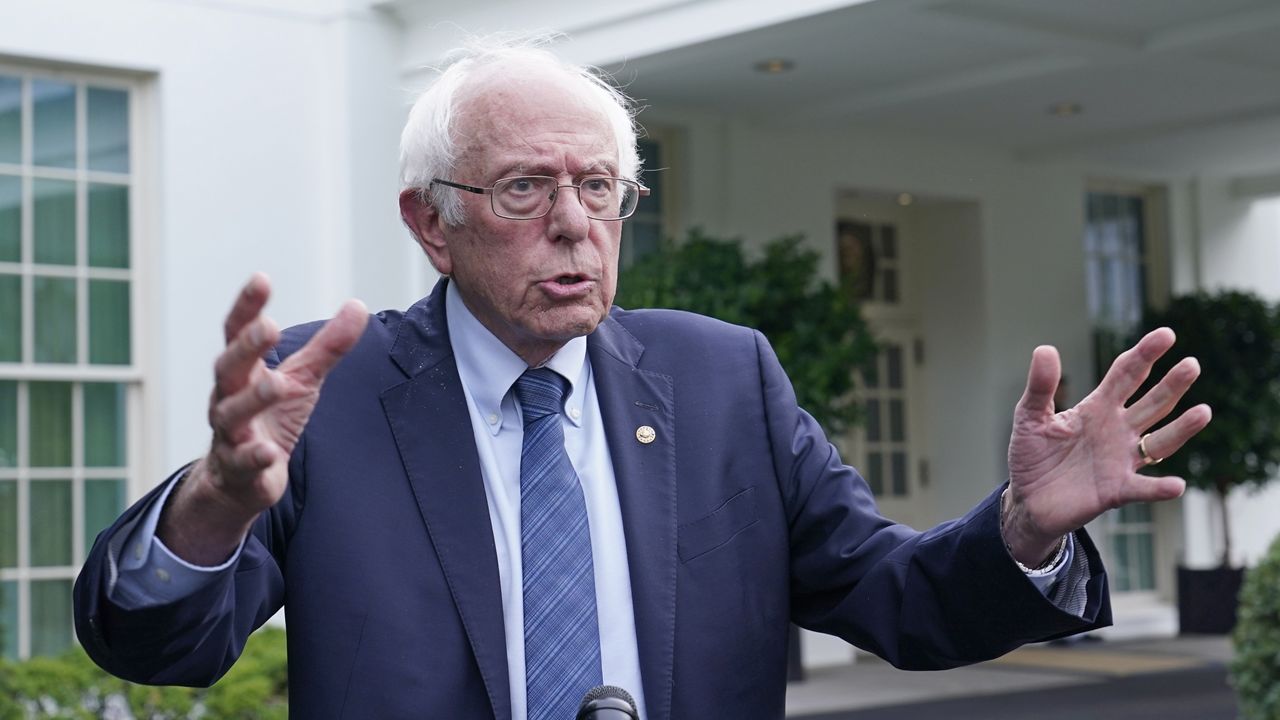Vermonters, Bernie Sanders is once again asking for your vote.
The prominent progressive announced Monday that he will be seeking another term representing the Green Mountain State in the U.S. Senate in November.
"These are very difficult times for our country and the world," Sanders said in a nearly nine-minute video announcing his decision. "And in many ways, this 2024 election is the most consequential election in our lifetimes. Will the United States continue to even function as a democracy, or will we move to an authoritarian form of government? Will we reverse the unprecedented level of income and wealth inequality that now exists, or will we continue to see billionaires get richer while working families struggle to put food on the table? Can we create a government that works for all of us, or will our political system continue to be dominated by wealthy campaign contributors? These are just some of the questions that together we need to answer."
Sanders, 82, was first elected to the U.S. Senate in 2006 after 16 years as Vermont's sole representative in the U.S. House of Representatives. He is the longest-serving independent member of Congress in United States history.
Born in Brooklyn, N.Y., Sanders graduated from James Madison High School and attended Brooklyn College and the University of Chicago before settling in Vermont. He was elected mayor of Burlington, Vt., in 1981, a position he held for eight years, serving four terms. While serving as Burlington's mayor, he unsuccessfuly ran for governor of Vermont in 1986, hosted a public access show, "Bernie Speaks with the Community," and recorded a folk and spoken word album, "We Shall Overcome." Terry Bouricius, who served as the president of Burlington's city council and was an ally to Sanders, said that he "changed the entire nature of politics in Burlington and also in the state of Vermont" when he was mayor.
In 1988, Sanders unsuccessfully ran for Vermont's at-large congressional district in the House against Republican Peter Smith, the state's lieutenant governor, after then-Rep. Jim Jeffords vacated the seat to run for U.S. Senate. Two years later, as an independent, he defeated Smith and Democratic candidate Dolores Sandoval to win the seat. Sixteen years later, when Sanders won his first race for Senate, it was Jeffords, a Republican-turned-independent, that he replaced; no Republican held either seat after Sanders' victory.
Sanders was one of the co-founders of the Congressional Progressive Caucus, a powerful group of progressives in the House, in 1991, and chaired the Senate's Veterans Affairs, Budget and Health, Education, Labor and Pensions Committees.
He emerged as a prominent figure on the national stage in 2016 when he sought the Democratic presidential nomination against Hillary Clinton, bolstered by a grassroots movement of donors and a strong showing in the Iowa caucuses. He scored a decisive win in the New Hampshire primary, kicking off a long primary battle between the two until Sanders in July 2016 endorsed Clinton and campaigned for her in her unsuccessful campaign against Republican Donald Trump. Sanders won 23 contests in the 2016 Democratic primary and scored about 43% of the vote.
Sanders once again sought the presidential nomination in 2020, decisively winning the New Hampshire and Nevada primaries before a resurgent Joe Biden won South Carolina ahead of a dominant Super Tuesday performance. He ended his campaign and endorsed Biden in April of 2020, and became one of Biden's greatest allies in the U.S. Senate after his victory over then-President Trump.
Just one Republican candidate, Gerald Malloy, has filed to run against Sanders. In 2022, Malloy unsuccessfully ran against then-Vermont Rep. Peter Welch, who succeeded Sanders in the House, for the open U.S. Senate seat to replace retiring Sen. Patrick Leahy. Welch defeated Malloy with more than 68% of the vote.
Sanders was reelected with 67% of the vote in 2018.



